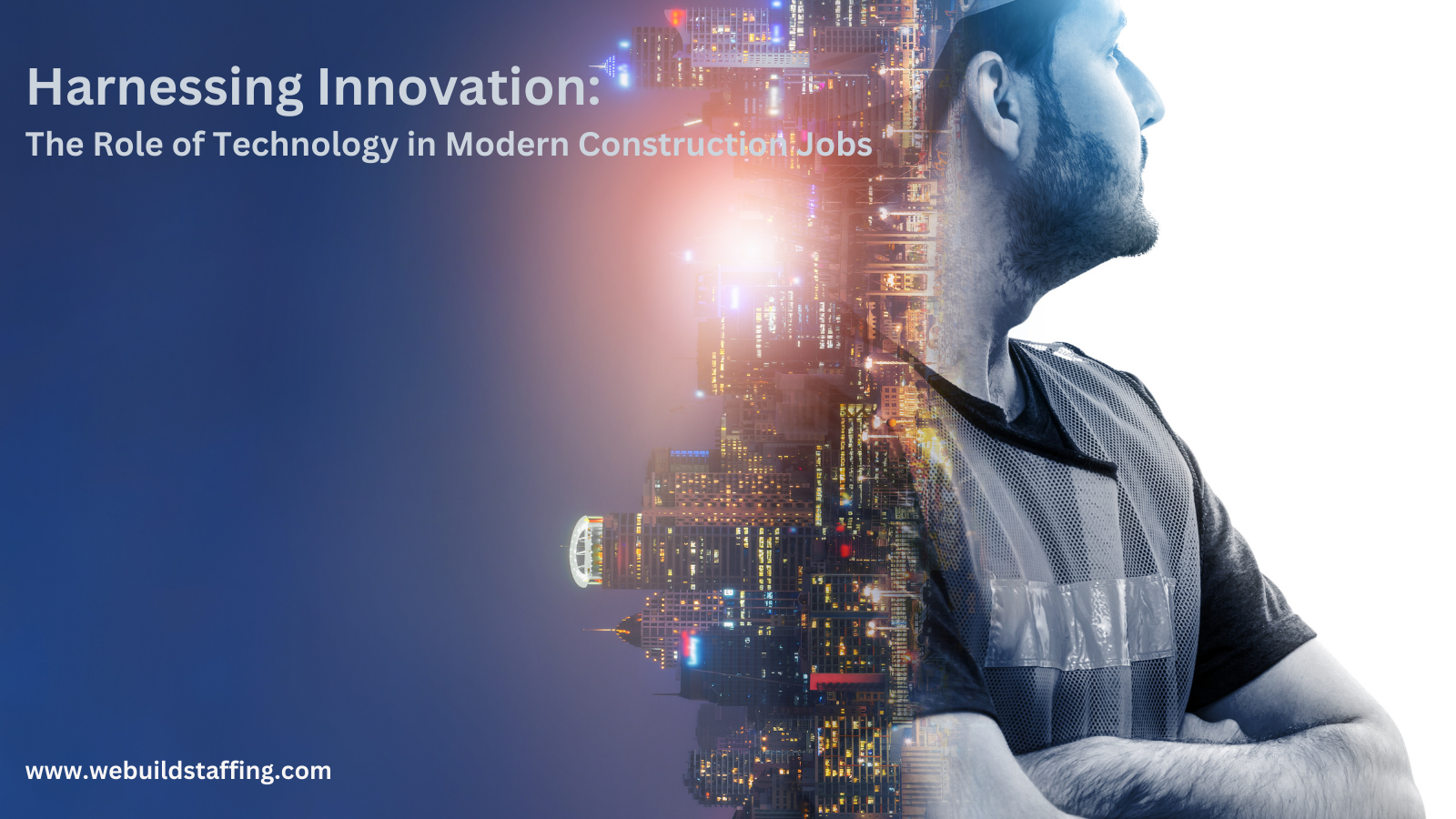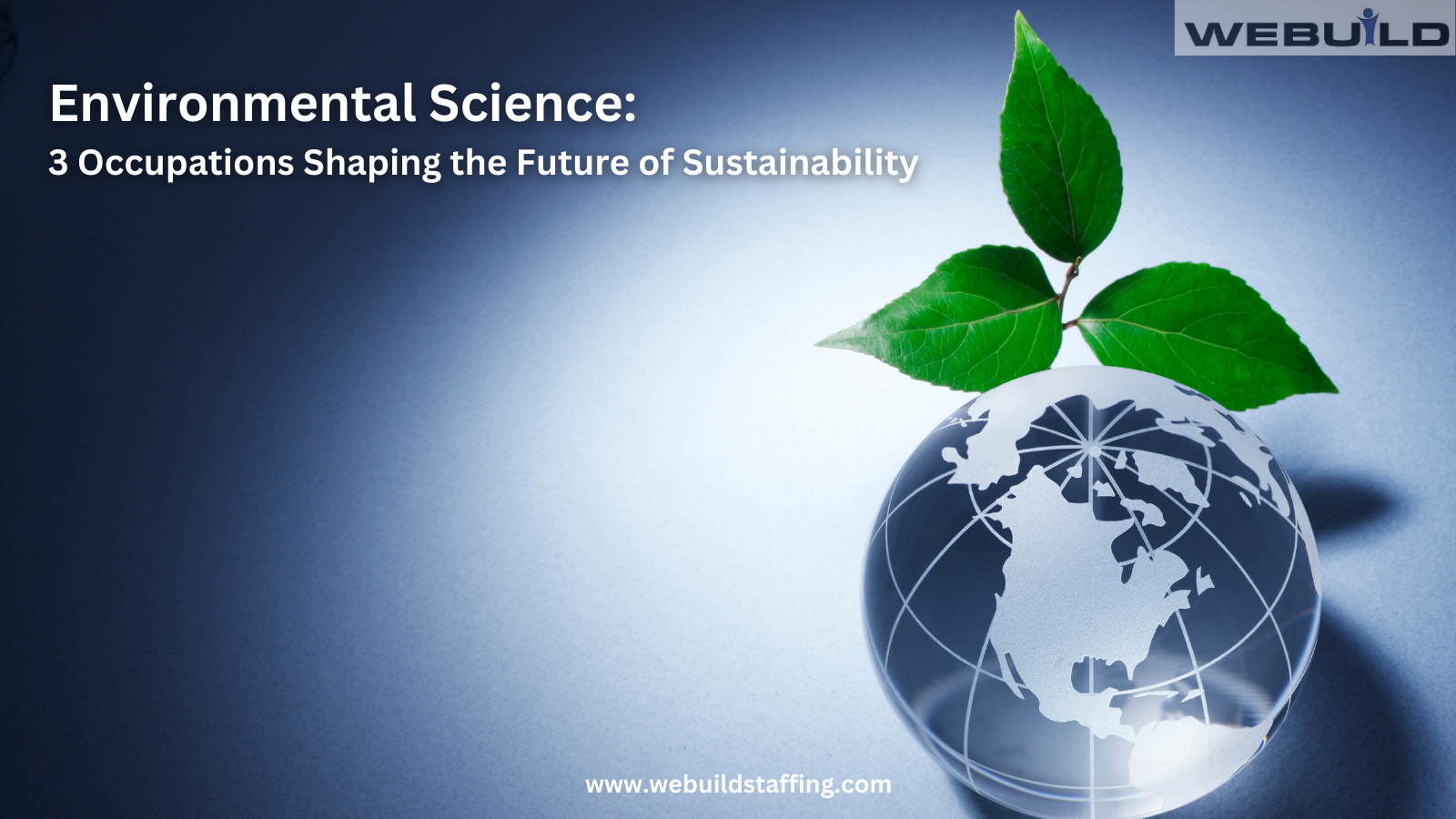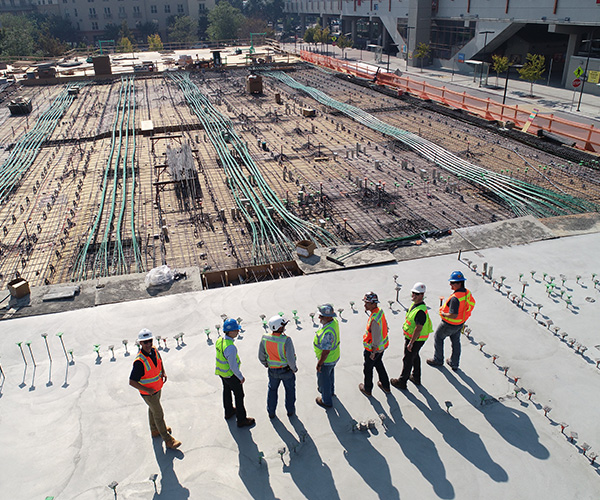Harnessing Innovation: The Role of Technology in Modern Construction Jobs
WEBUILD STAFFING BLOG |
Harnessing Innovation: The Role of Technology in Modern Construction Jobs

The construction industry has always been at the forefront of innovation, embracing new technologies to improve efficiency, productivity, and safety on the job site. From cutting-edge equipment and machinery to advanced software and digital tools, technology plays a central role in modern construction jobs. Today we’ll explore the evolving landscape of technology in construction, highlighting its impact on various roles and disciplines within the industry and the opportunities it presents for construction professionals.
The Evolution of Technology in Construction:
Over the years, technology has revolutionized every aspect of the construction industry, from project planning and design to execution and maintenance. What was once a predominantly manual and labor-intensive field has been transformed by advancements in automation, robotics, artificial intelligence, and digitalization. Today, construction professionals have access to a wide range of innovative tools and technologies that enable them to work smarter, faster, and more efficiently than ever before.
Digital Design and Building Information Modeling (BIM):
One of the most significant advancements in construction technology is the widespread adoption of digital design and Building Information Modeling (BIM). BIM software allows architects, engineers, and contractors to create detailed 3D models of buildings and infrastructure projects, enabling better visualization, coordination, and communication throughout the project lifecycle. BIM facilitates collaboration among stakeholders, reduces errors and conflicts, and improves decision-making, leading to more streamlined and cost-effective construction processes.
Drones and Aerial Imaging:
Drones have become indispensable tools in modern construction projects, offering aerial imaging and surveying capabilities that were previously prohibitively expensive or time-consuming. Drones can capture high-resolution images and videos of construction sites, providing valuable insights into site conditions, progress tracking, and safety monitoring. With their ability to access hard-to-reach areas and collect data quickly and accurately, drones are revolutionizing how construction professionals plan, manage, and execute projects.
Robotics and Automation:
Robotics and automation are transforming the way construction tasks are performed, from excavation and demolition to assembly and finishing. Robotic systems can perform repetitive or hazardous tasks with precision and efficiency, reducing the risk of accidents and injuries on the job site. From robotic arms and exoskeletons to autonomous vehicles and 3D printers, robotics technology is revolutionizing construction processes and reshaping the future of work in the industry.
Advanced Materials and Prefabrication:
Advancements in materials science and prefabrication techniques are driving innovation in construction, allowing for the use of stronger, lighter, and more sustainable materials in building projects. From high-performance concrete and composite materials to prefabricated building components and modular construction systems, modern materials offer numerous benefits in terms of durability, efficiency, and environmental sustainability. By leveraging advanced materials and prefabrication methods, construction professionals can accelerate project timelines, reduce waste, and improve overall quality and performance.
Wearable Technology and Smart Safety Solutions:
Wearable technology and smart safety solutions are enhancing workplace safety and productivity in construction jobs. Wearable devices such as smart helmets, safety vests, and wearable sensors can monitor vital signs, detect hazards, and provide real-time feedback to workers and supervisors. IoT (Internet of Things) sensors and connected devices can track equipment usage, monitor environmental conditions, and automate safety protocols, improving safety outcomes and reducing the risk of accidents and injuries on the job site.
Artificial Intelligence and Machine Learning Technology:
Artificial intelligence (AI) and machine learning technologies are revolutionizing construction jobs by enabling predictive analytics, optimization, and automation of complex tasks. AI-powered algorithms can analyze vast amounts of data, identify patterns and trends, and generate actionable insights to inform decision-making and improve project outcomes. From predictive maintenance and resource allocation to risk management and scheduling optimization, AI is transforming how construction projects are planned, executed, and managed.
Augmented Reality and Virtual Reality Technology:
Augmented reality (AR) and virtual reality (VR) technologies are revolutionizing how construction professionals visualize and interact with building designs and project plans. AR and VR applications allow users to overlay digital information onto the physical environment or immerse themselves in virtual simulations of construction projects. These immersive technologies enable stakeholders to experience buildings in 3D, identify design flaws, explore alternative layouts, and visualize finished spaces before construction begins, leading to more informed decision-making and better outcomes.
Technology is playing an increasingly central role in modern construction jobs, revolutionizing how projects are planned, designed, and executed. From digital design and BIM to drones, robotics, AI, and wearable technology, innovative tools and techniques are empowering construction professionals to work smarter, safer, and more efficiently than ever before. By embracing technology and staying abreast of the latest advancements in the field, construction professionals can unlock new opportunities, enhance their skills, and drive innovation in the industry, ultimately shaping the future of construction for generations to come.
Webuild Staffing Agency is a leading executive search and staffing agency dedicated to the construction, engineering and environmental industries. To learn more please visit: www.webuildstaffing.com










